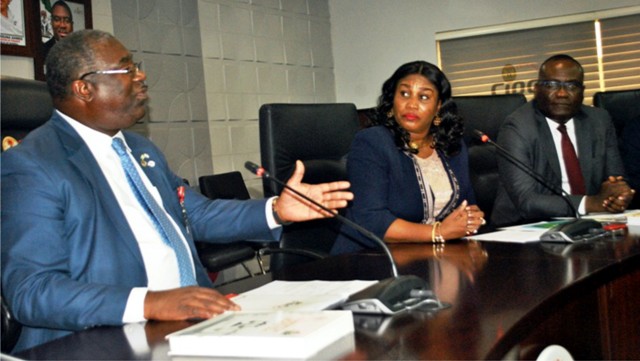Business
RSG To Set Up Economic Empowerment Trust Fund

As part of efforts to create jobs and boost employment opportunities, the Rivers State Government says it would set up an economic empowerment Trust Fund.
The State Commissioner for Employment Generation and Economic Empowerment, Dr Leloonu Nwibubasa who disclosed this during the 2nd Rivers State Employers Round-table in Port Harcourt on Tuesday, said the economic trust fund would be set up in collaboration with relevant stakeholders in the private sector to effectively drive the process in a sustainable manner.
Nwibubasa stated that the round-table which has as its theme ‘Collaborative Stakeholders Action for Job Creation in Rivers State’, if diligently harnessed will provide opportunities that will improve the life of our people, reduce poverty, unemployment, crime and insecurity in the state.
While stating that Governor Nyesom Wike has given his support to the Ministry to bring together stakeholders in the employment industry to contribute knowledge, the commissioner noted that government cannot plan and implement programmes without the right statistics.
“The Ministry has taken steps to correct this deficit by opening a more interactive portal www.megee.rv besides the rivjobs. Steps are also being taken to establish an employment bureau in all local government areas, a legislation to this effect is in the works,” he stated.
“Drawing from our recent political experience, I can assure you that the re-elected Governor of Rivers State is prepared more than ever to reposition the State on the path of economic prosperity. The Governor is working hard to ensure we have a safe state. Several measures are already in place to return the state to investors’ haven,” Nwibubasa stated.
Earlier in address of welcome, Chairman Local Organising Committee of the event and President, Port Harcourt Chamber of Commerce, Chief Nabil Saleh said job creation is an aspect of economic development which sadly in the past has been perceived to be the sole responsibility of government.
Saleh said, “Permit me to once more restate that, that thinking is wrong as we all need to work together (both the government, private organisation and private individuals) to make it come to pass;” even as he charged all invited companies operating in the state and stakeholders to make their input so as to come out with a draft action plan.
“This will enable us achieve our set goal of creating at least one million jobs in the next five years. Let us have it at the back of our minds that this committee is totally dedicated to put words into action and upgrade the human capital development of our dear Rivers State and her people collectively,” he said.
Dennis Naku
Transport
Automated Points Concession : FAAN Workers Gave 72hrs To Revise Decisions In PH

Transport
FAAN Announces Pick-Up Points for Go-Cashless Cards

Business
Fidelity Bank To Empower Women With Sustainable Entrepreneurship Skills, HAP2.0
-

 News4 days ago
News4 days agoAmend Constitution To Accommodate State Police, Tinubu Tells Senators
-

 Politics4 days ago
Politics4 days agoSenate Urges Tinubu To Sack CAC Boss
-
Business4 days ago
Crisis Response: EU-project Delivers New Vet. Clinic To Katsina Govt.
-
Business4 days ago
President Tinubu Approves Extension Ban On Raw Shea Nut Export
-

 News4 days ago
News4 days agoDisu Takes Over As New IGP …Declares Total War On Corruption, Impunity
-
Business4 days ago
Fidelity Bank To Empower Women With Sustainable Entrepreneurship Skills, HAP2.0
-
Business4 days ago
President Tinubu Extends Raw Shea Nuts Export Ban To 2027
-
Sports4 days ago
NDG: Rivers Coach Appeal To NDDC In Talent Discovery

